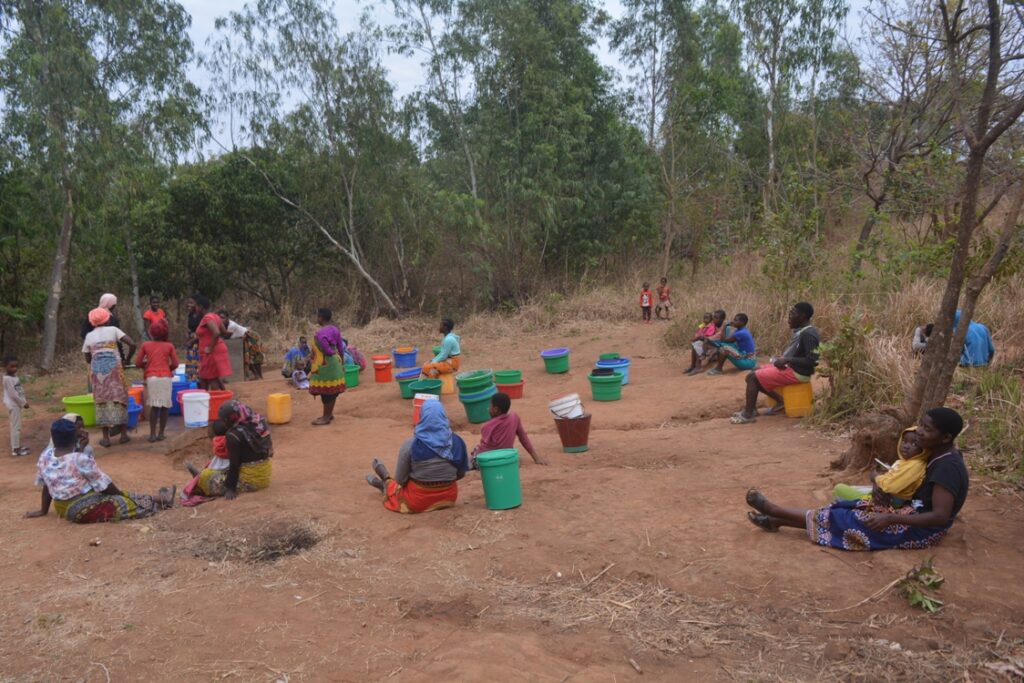
Since the country got its independence in 1964 some people mostly in rural areas are still struggling to access clean water.
Sustainable Development Goal (SDG6) 6 seeks to ensure safe drinking water and sanitation for all.
However, the people of Kachingwe village in Nsanje district are far much behind from achieving this goal as they still drink unsafe water.
Eliza Mwanza and Emily Ng’oma Village Development Committee (VDC) members in Traditional Authority (TA) Mbenje in the district said that they walk along distance to access portable water in their areas.
Ng’oma said women and girls wake up in the wee hours searching for clean water at a long distance ranging from 4 to 10 kilometers. ‘
According to Ng’oma, this is contributing to the gender based violence (GBV) in the area as their husbands suspect them of cheating when they go to search water in long distances.
As a result, some women resort to fetch water from the Shire River in the process being attacked by crocodiles.
“I was once attacked by a crocodile when l went to fetch water from the Shire River, I nearly died,” narrates Ng’oma
On her part, Mwanza said some time they fetch water in nearby rivers and open wells where they have to drink with livestock; and the water is mixed with livestock urine.
According to United Nations Children’s Fund–UNICEF, about 2.2 billion people are still lacking access to safe drinking water across the world.

Over 700 children under the age of 5 die every day of diarrhea diseases due to lack of the appropriate WASH (water and sanitation and hygiene).
In trying to alleviate water challenges in Malawi, and improve hygiene and sanitation a charitable organization called Pacific group Limited company is for free of charge rehabilitating some broken boreholes targeting some rural areas in the country.
This comes as in 2015; the company launched a free borehole rehabilitation project aiming at complementing government’s efforts in providing safe and clean water to Malawians especially in the rural areas.
James Msusa, the Pacific Group Limited team leader, said that since the inception of the project in 2015, the company has fixed over 7000 boreholes in various communities.
The government through Ministry of Water and Sanitation agrees that the level of access to basic sanitation and hygiene in Malawi requires some improvements.
Ministry’s Public Relations officer, Daire Kumwenda called for joint efforts by all the irrelevant stakeholders in water sector so as to see to it that people especially in rural areas have access for clean water.
Overall, 88.3 percent of the households have access to improved water sources (97.1% in Urban areas and 86.5% in rural areas)
According to Kumwenda, 64.5 percent of the households are using boreholes as their main source of drinking water followed by 17.8 percent with stand pipes.
He, therefore, said that to ensure that people living in the rural areas have access to safely managed drinking water, hygiene and sanitation the ministry is undertaking several interventions focusing on both provision of new facilities but also rehabilitation of non-functional water points where applicable by the ministry and its Developmental Partners.
SDG 6 goes beyond drinking water, sanitation and hygiene to also address the quality and sustainability of water resources, which are critical to the survival of people and the planet.
The 2030 Agenda recognizes the centrality of water resources to sustainable development and the vital role that improved drinking water; sanitation and hygiene play in progress in other areas, including health, education and poverty reduction.

